 Convey Meaning
Convey MeaningThis page is Convey Meaning page of four particles with different verbs.
 What are Two-Word Verbs?
What are Two-Word Verbs?
 A two-word verb is a kind of verb that consists of two parts.
A two-word verb is a kind of verb that consists of two parts.  This self-learning project chose four of the
most frequent particles in the PHaVE List.
This self-learning project chose four of the
most frequent particles in the PHaVE List.  The layout of these two-word verbs are organized by alphabetical order.
The layout of these two-word verbs are organized by alphabetical order.
 Note that STH means something; SB means somebody.
Note that STH means something; SB means somebody.
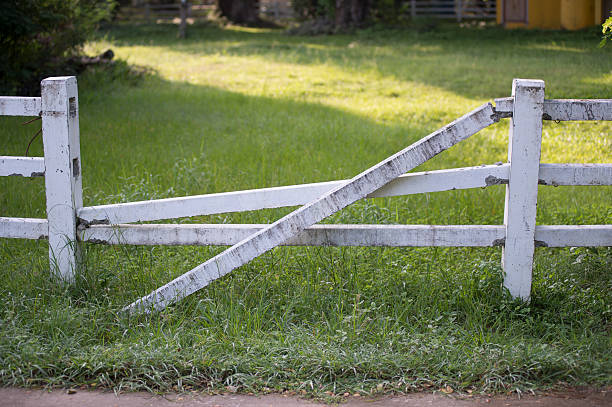







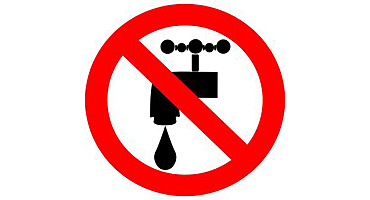




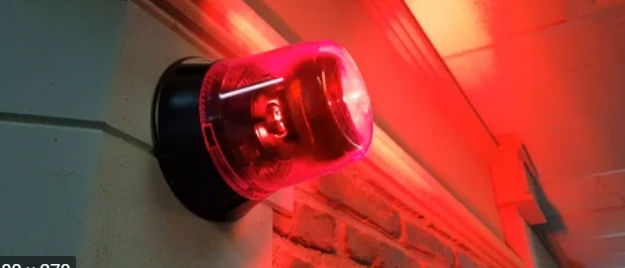


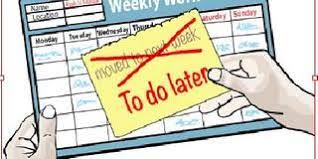


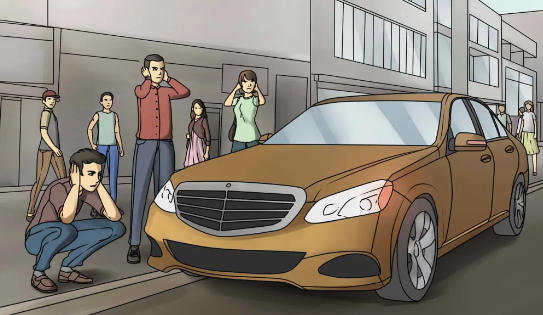




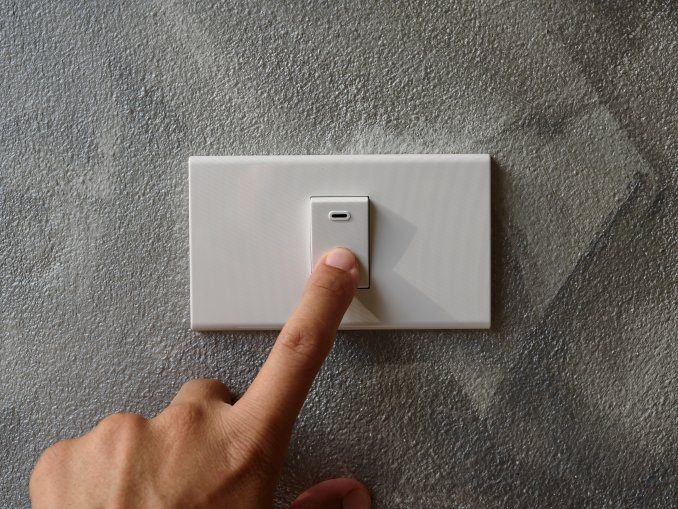

| Two-Word Verbs | Illustration | Meaning & Context & Frequency |
|---|---|---|
| break off |
|
1) Separate a part (or become separate) from a larger piece (40%) He accidentally broke off a piece of wood from the fence. 2) Stop speaking, especially suddenly (28%) “There is something that…” The man broke off due to the appearance of his kid. 3) Put an end to STH (relationship, discussion, talks, negotiations) (24%) They broke off diplomatic relations in 1986. |
| come off |
|
1) Become detached or removed from a larger whole (34%)
The button is coming off my coat. 2) Appear or seem to be a particular way (24.5%) She was tired and not prepared, and so came off poorly in the interview. 3) Be finished with STH; have completed STH (17.5%) The team just came off an incredibly successful season. |
| cut off |
|
1) Remove a part of STH by cutting it (27%) Take the carrots and cut the ends off. 2) Interrupt SB as they are speaking (24.5%) The teacher cut off these two students who were arguing. 3) End the provision of STH, or be deprived of a provision (supply, money) (23.5%) Water supply will be cut off on Monday due to maintenance work. |
| get off |
|
1) Go away from, leave (train, bus, aircraft, lift) (54%) You need to take the bus and get off at the third stop. 2) (Get off to a ... start) Begin something in a certain way (12.5%) The team has got off to a good start this season. 3) Manage to avoid serious trouble or consequences (esp. legal punishment) (12%) It’s not right that he could commit such a crime and get off so easily. |
| go off |
|
1) Go somewhere, esp. for a particular purpose (44.5%) He decided to go off to college. 2) Emit a loud noise or sudden light as a signal or warning (22%) The security alarm is going off. |
| pay off |
|
1) Pay the complete amount of STH (49%) It will take a dozen years for him to pay off his debts. 2) Pay back the effort spent in doing STH by becoming profitable or effective (48.5%) All the hard work paid off in the end. |
| put off |
|
1) Delay until a later time or date (68%) I put off my dental appointment at the last moment. 2) Cause to feel intense dislike (27.5%) The bad smell put everyone off. |
| set off |
|
1) Start on a trip or journey (30.5%) We will finish packing and set off in the morning. 2) Cause a device to explode, or a signal to start, esp. by accident (27.5%) He accidentally set off my car alarm. 3) Make STH happen or emerge, esp. without intending to (25.5%) Employees started to protest, setting off a dispute over workers’ rights. |
| take off |
|
1) Remove STH (esp. piece of clothing or jewellery from one’s body) (41%)
I took off my pajamas and put on my shirt to go to work. 2) Leave a place, especially suddenly (28.5%) They jumped into the car and took off. 3) Leave the ground and rise into the air (14%) The plane took off at 7am. |
| turn off |
|
1) Stop a piece of equipment working temporarily or a supply flowing by turning a tap, pressing a button, or moving a switch (69.5%)
People were asked to turn off the light before go to sleep. 2) Cause to feel intense dislike (20.5%) His speech turned off left-wing voters. |






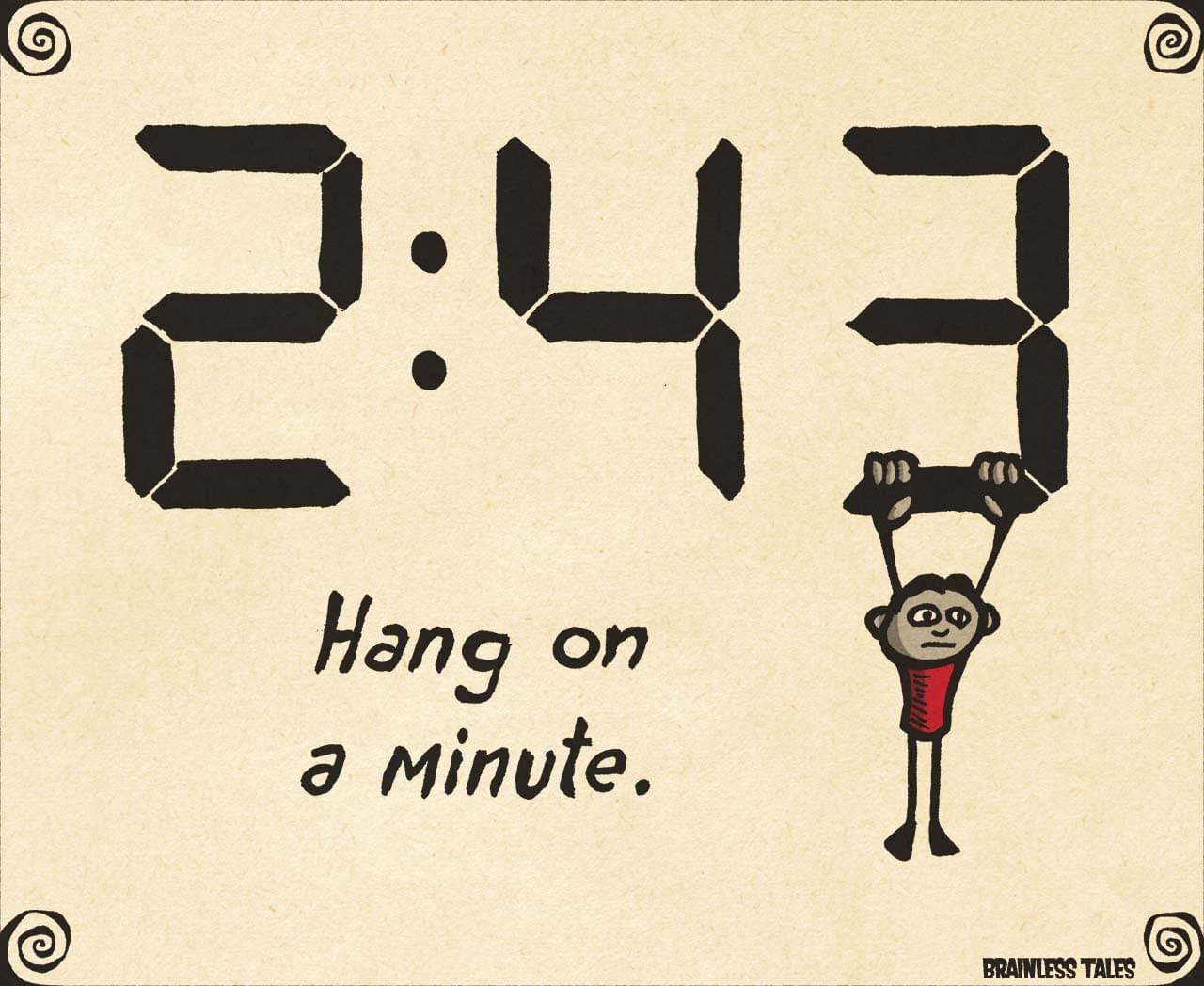


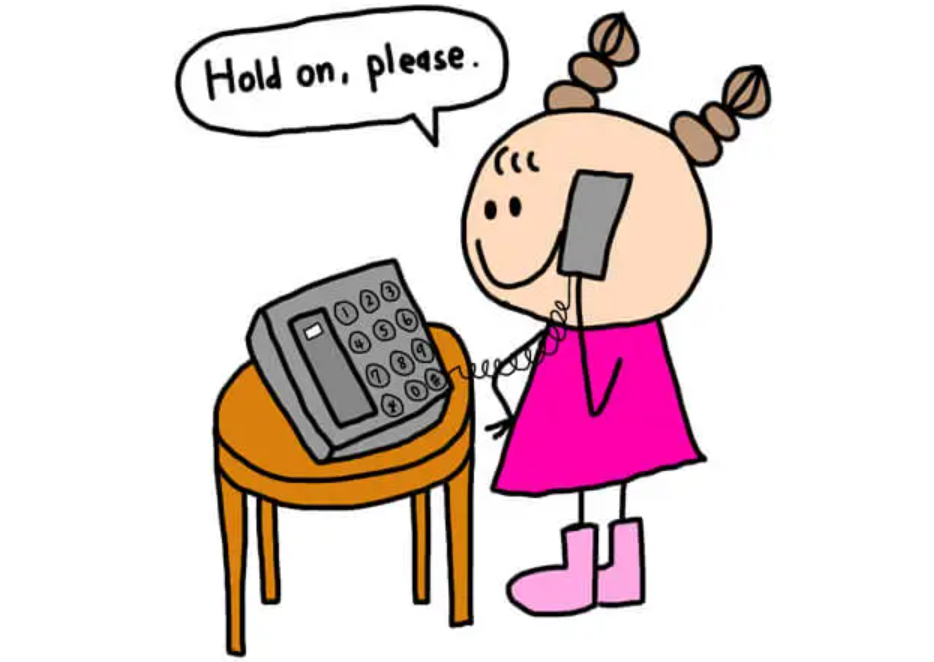








| Two-Word Verbs | Illustration | Meaning & Context & Frequency |
|---|---|---|
| carry on |
|
1) Continue to do or be involved with STH, or make STH continue (especially despite difficulty) (66%) I would like to carry on working after I retire. 2) Engage or take part in (15%) It's too noisy here to carry on conversations. |
| come on |
|
Said to encourage SB to try harder, or do or say STH (50%)
Come on, don’t be shy and tell us your story. |
| get on |
|
1) (+ with) Continue doing STH after stopping (51%) We might as well get on with it if we want to finish on time. 2) Get on board some form of public transportation (train, bus, plane, elevator) (14.5%) He got on the bus to go to school. |
| go on |
|
Happen, take place (64.5%) There is a debate going on right now between the two parties. |
| hang on |
|
1) Wait for a short time (41.5%) Please hang on for a minute, I’ll be quick. 2) Refuse to let go of STH (35.5%) He hung on to his job until the very last day. |
| hold on |
|
1) Refuse to let go of STH (57%) He held on to his job until the very last day. 2) Wait for a short time (35.5%) I’ll find her quickly, please hold on for one minute. |
| keep on |
|
Continue doing STH without stopping, or repeatedly (92.5%) The little girl wiped tears off her cheeks but kept on crying. |
| move on |
|
1) Start doing or discussing STH new (job, activity, conversation topic) (42%) Let’s move on to our next topic. 2) Change physical location (spot, room, country) (28%) She lived in New York, then London, and finally moved on to Rome. 3) Forget about a difficult experience and move forward mentally/emotionally (25%) He’s had a difficult year but he’s now ready to move on. |
| put on |
|
1) Put a piece of clothing or jewellery onto one’s body (52%) You should put on your gloves, it’s really cold outside. 2) Present or stage (play, show, competition) (14.5%) They put on such an incredible show last night! |
| take on |
|
1) Undertake or handle (role, task, responsibility, problem, issue) (42%) Nobody was willing to take on such an awful job. 2) Acquire or assume as one’s own (quality, meaning, colour, shape) (41.5%) The story takes on a whole new meaning when you read it again. |














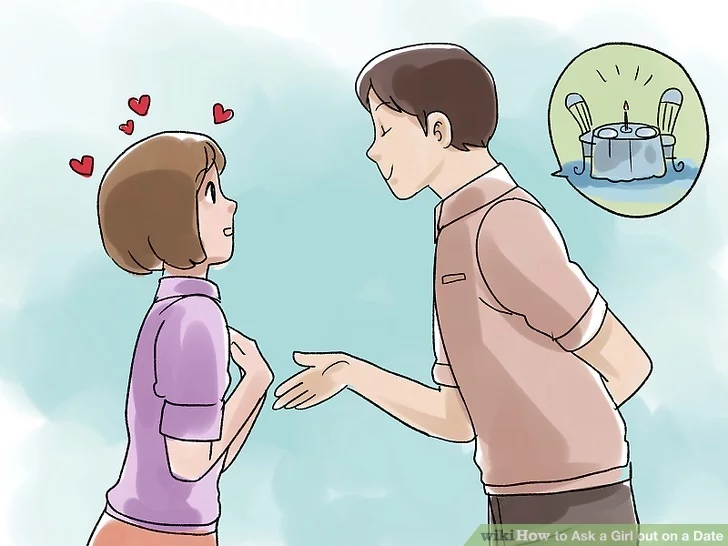
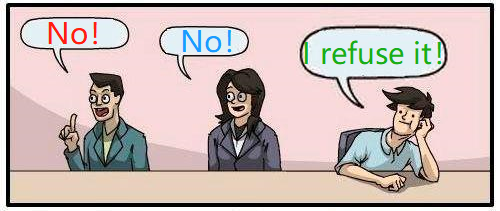

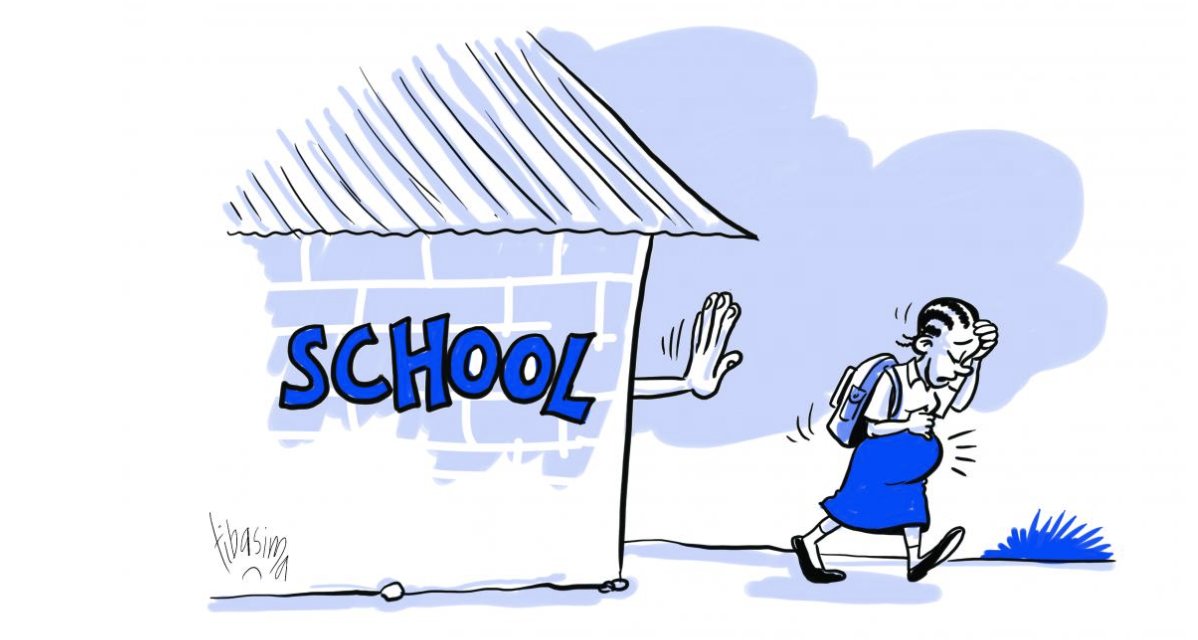



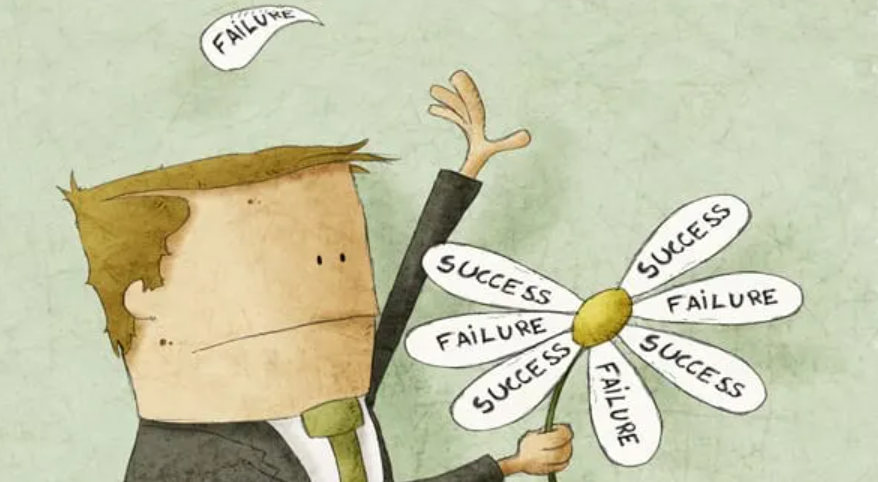
| Two-Word Verbs | Illustration | Meaning & Context & Frequency |
|---|---|---|
| come out |
|
1) Leave a place (room, building, container) or appear from it (38%) He went into the bank and came out with some money. 2) Become known or revealed after being kept secret (13.5%) The news came out that he was leaving the team. 3) Become available or released to the public (film, record, book) (10%) Her new album is coming out next month. |
| figure out |
|
Come to understand or determine STH (100%)
Despite her efforts, she couldn’t figure out what had happened. |
| hang out |
|
Spend time relaxing or enjoying oneself (84%) I like to hang out with friends in my spare time. |
| hold out |
|
1) Move one’s hand or an object in one’s hand forward or towards SB, in order to grab or give STH (61%)
He took the keys and held them out to her. 2) Hold STH as likely to happen or succeed (hope, possibility, prospect, promise) (15%) Negotiators aren’t holding out much hope of a peaceful settlement. |
| look out |
|
1) Look outside, or at the horizon (50.5%)
She liked to go by the window and look out at the garden. 2) Take care of SB and make sure they are well; protect SB’s interests (25.5%) We look out for each other as if we were family. |
| reach out |
|
1) Stretch an arm in order to hold, touch, or get STH that is within short distance (48.5%) The little boy reached out for the cookie jar on the table. 2) Make an effort to address or communicate with SB, so as to help them or involve them in STH (39.5%) We can reach out to our friend when we need help. |
| set out |
|
1) Start doing or working on STH, esp. with a particular goal in mind (42.5%) I set out to discover the truth behind the story. 2) Start a journey (26.5%) We set out for San Francisco on the following day. |
| take out |
|
1) Remove STH/SB from somewhere (container or abstract whole) (50.5%) He tore open the envelope and took out a few bills. 2) Invite to a recreational place or social event (13.5%) You should take her out to this new Chinese restaurant. |
| throw out |
|
1) Refuse to accept or consider (esp. by people of authority) (29%) The idea was thrown out by the committee. 2) Put STH in a rubbish bin (25.5%) He threw out a trash bag into a rubbish bin. 3) Make SB leave a place, activity or organization, esp. forcibly and unexpectedly (21%) The student was caught cheating and subsequently thrown out of school. |
| work out |
|
1) Plan, devise or think about STH carefully or in detail (33%) We still need to work out the details of the procedure. 2) Exercise in order to improve health or strength (23%) They work out at the gym five times a week. 3) (+ well/badly) Happen or develop in a particular way (15%) Everything worked out well in the end. 4) Prove to be successful (12.5%) Despite our efforts, it just didn’t work out. |
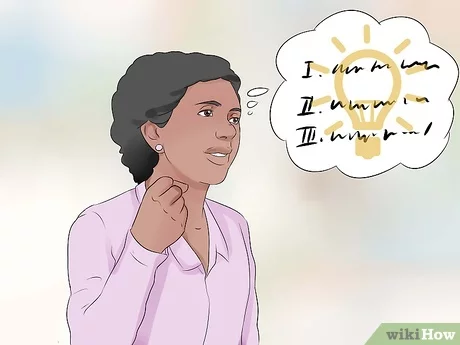






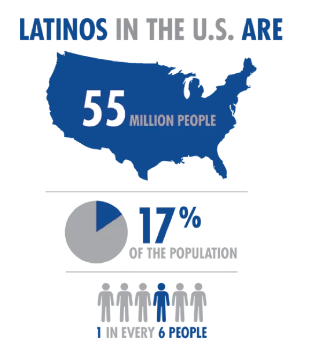






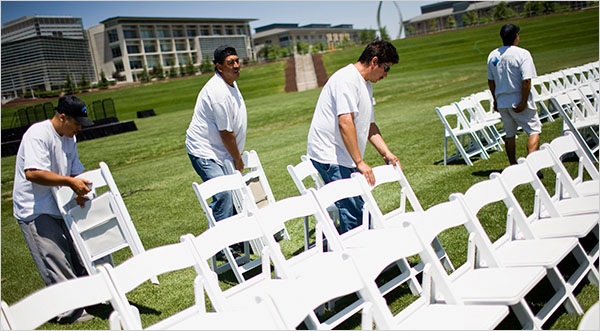




| Two-Word Verbs | Illustration | Meaning & Context & Frequency |
|---|---|---|
| bring up |
|
1) Raise for discussion or consideration (59.5%) I didn’t think she would bring up the subject. 2) Care for/be responsible for a child until it becomes an adult (17.5%) He was brought up by his grandparents. |
| catch up |
|
1) (Be/Get caught up) Become involved in STH which prevents SB from making progress or moving forward (26%) He is very busy and always caught up in his work. 2) Reach SB that is ahead by walking, running, or driving faster (18%) She was running so fast that it was impossible to catch up with her. |
| come up |
|
1) (+ with) Bring forth or produce (34%)
She instantly came up with a solution to the problem. 2) (Be coming up) Be happening soon (esp. be broadcast soon) (27.5%) Coming up after the news, our cooking program will feature cheese. |
| end up |
|
Finally do STH or be in a particular place, state, or situation after doing STH or as a consequence of it, esp. unexpectedly (100%)
She ended up having to sell her car after her accident. |
| make up |
|
1) Form the whole of an amount or entity (42.5%) Hispanics make up more than 15% of the U.S. population. 2) (+ for) Compensate for STH lacking, lost or missed (18.5%) Some solution has to be found to make up for such losses. 3) (Make up one’s mind) Make a decision (15.5%) You should make up your mind about who you will vote for. |
| pick up |
|
Get or take SB/STH from a place (70.5%) Can you pick up some food on the way home from work please? |
| put up |
|
1)
Display or attach STH (e.g. to a wall) so it can be seen (23%)
She is putting up a few pictures on the wall. 2) (+ with) Be willing to accept STH unpleasant or not desirable; tolerate (19%) She put up with his violent temper. |
| set up |
|
1) Establish or create STH; arrange for STH to happen or exist (64.5%) An advisory committee is being set up. 2) Place STH in a particular spot or position (16.5%) We need to set up a few more chairs so everyone can sit down. |
| take up |
|
1) Use a particular amount of space, time or effort (25.5%)
I stacked my comic books in the corner so they would not take up too much space. 2) Discuss or deal with (issue, idea, matter) (17.5%) The colleagues are taking up the issue. 3) Start doing a particular job or activity, esp. for pleasure (10.5%) He took up gardening last year. |
| wind up |
|
End up in a particular situation, condition or place, esp. an unpleasant one (87%)
They wound up having to pay off his debts. |

